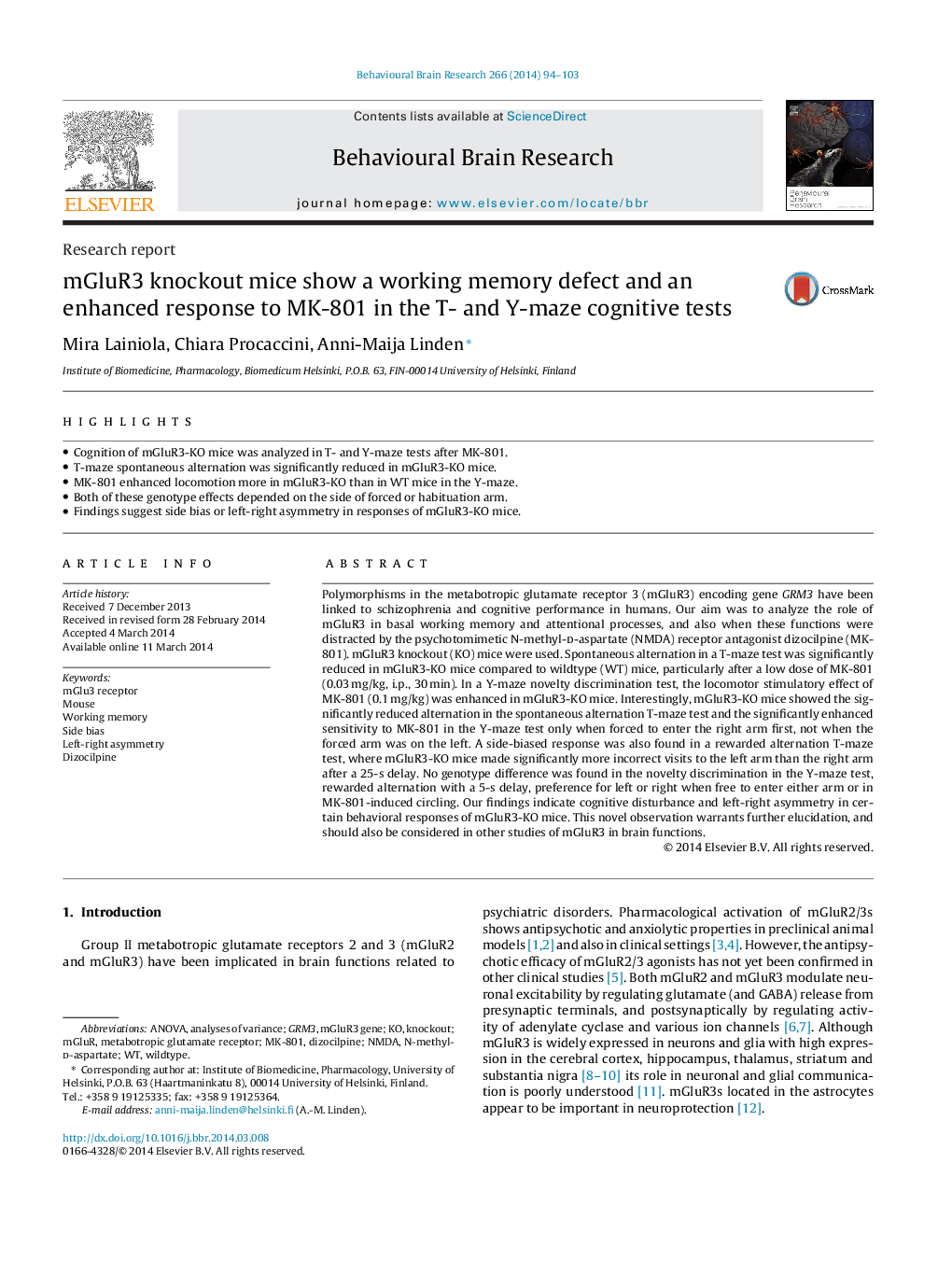| Article ID | Journal | Published Year | Pages | File Type |
|---|---|---|---|---|
| 6258197 | Behavioural Brain Research | 2014 | 10 Pages |
â¢Cognition of mGluR3-KO mice was analyzed in T- and Y-maze tests after MK-801.â¢T-maze spontaneous alternation was significantly reduced in mGluR3-KO mice.â¢MK-801 enhanced locomotion more in mGluR3-KO than in WT mice in the Y-maze.â¢Both of these genotype effects depended on the side of forced or habituation arm.â¢Findings suggest side bias or left-right asymmetry in responses of mGluR3-KO mice.
Polymorphisms in the metabotropic glutamate receptor 3 (mGluR3) encoding gene GRM3 have been linked to schizophrenia and cognitive performance in humans. Our aim was to analyze the role of mGluR3 in basal working memory and attentional processes, and also when these functions were distracted by the psychotomimetic N-methyl-d-aspartate (NMDA) receptor antagonist dizocilpine (MK-801). mGluR3 knockout (KO) mice were used. Spontaneous alternation in a T-maze test was significantly reduced in mGluR3-KO mice compared to wildtype (WT) mice, particularly after a low dose of MK-801 (0.03Â mg/kg, i.p., 30Â min). In a Y-maze novelty discrimination test, the locomotor stimulatory effect of MK-801 (0.1Â mg/kg) was enhanced in mGluR3-KO mice. Interestingly, mGluR3-KO mice showed the significantly reduced alternation in the spontaneous alternation T-maze test and the significantly enhanced sensitivity to MK-801 in the Y-maze test only when forced to enter the right arm first, not when the forced arm was on the left. A side-biased response was also found in a rewarded alternation T-maze test, where mGluR3-KO mice made significantly more incorrect visits to the left arm than the right arm after a 25-s delay. No genotype difference was found in the novelty discrimination in the Y-maze test, rewarded alternation with a 5-s delay, preference for left or right when free to enter either arm or in MK-801-induced circling. Our findings indicate cognitive disturbance and left-right asymmetry in certain behavioral responses of mGluR3-KO mice. This novel observation warrants further elucidation, and should also be considered in other studies of mGluR3 in brain functions.
